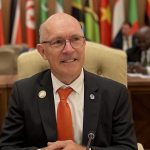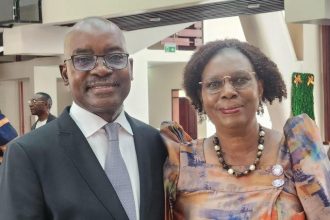Cuba’s Vice President, Salvador Valdes Mesa, handed over the rotating one-year chairmanship of the Group of 77 and China (G77+China) to President Yoweri Museveni in a symbolic ceremony at the Munyonyo Commonwealth Resort Hotel in Kampala, Uganda. Cuba pledged “total support” to Uganda, emphasizing the strong bond between the two nations.
G77+China, established in June 1964, is the largest intergovernmental organization of developing countries within the United Nations, with over 130 member states. The chairmanship rotates among member countries in Asia, Africa, and Latin America based on regional principles.
During the handover ceremony, Mesa expressed confidence in Museveni’s leadership, acknowledging his efforts in promoting peace and stability in Africa and worldwide. Despite not being a member, China has been actively supporting and cooperating with the group under the framework of “G77 and China.”
Mesa highlighted Cuba’s significant role in various international meetings as the leader of G77+China, contributing to the representation of developing countries’ interests in critical forums. The group has played a vital role in UN negotiations, particularly on sustainable development, and has been actively involved in preparations for future summits.
President Museveni, taking over the chairmanship, outlined Uganda’s commitment to furthering the implementation of the 2030 Agenda for Sustainable Development. The agenda, launched in September 2015, aims to eradicate poverty in all its forms. Uganda’s leadership will focus on scaling up action on climate change and biodiversity loss, as well as strengthening international tax cooperation.
Table: Key Objectives of Uganda’s G77+China Chairmanship
| Objectives |
|---|
| Promote 2030 Agenda for Sustainable Development |
| Scale up action on climate change and biodiversity loss |
| Strengthen international tax cooperation |
The G77+China serves as a platform for Global South countries to articulate and promote their collective economic interests, enhance joint negotiating capacity on major international economic issues within the UN system, and foster South-South cooperation for development. It was established by 77 developing countries, signatories of the “Joint Declaration of the Seventy-Seven Developing Countries” at the end of the first session of the United Nations Conference on Trade and Development in Geneva.




















